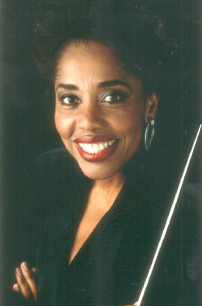Tania León came to the United States in 1967 as a refugee from Cuba, where she had studied at the National Conservatory of Havana. She traces her truly global heritage to France, Spain, Africa, Cuba, and China. Her first position was as musical director of the Dance Theatre of Harlem, the pioneering African American ballet company founded by Arthur Mitchell. (Mitchell was a protégé of George Balanchine’s, a collaborator of Stravinsky’s at the Ballets Russes.) Today León teaches composition and conducting at Brooklyn College.
León’s works, like those of many composers at the end of the twentieth century, unite several musical and cultural traditions under a broad, avant-garde umbrella. Her Latin American and African roots are especially prominent, both in her choices of themes for her works and in many of their musical aspects. She employs a wide range of different performing forces, from solo piano to large orchestra, but various kinds of chamber ensembles, usually including ample percussion, are perhaps her favorite medium. Her harmonies tend to the dissonant and atonal side, but tonality can reassert itself in striking and unexpected ways. Her melodies are angular and modernist, but can break out in jazzy, Latin tunes. Most striking in her music is its enormously dynamic rhythm, a merging of African and Latin drumming with modernist masters of rhythm such as Stravinsky and Bartók that gives León’s music a distinct individual sound.
